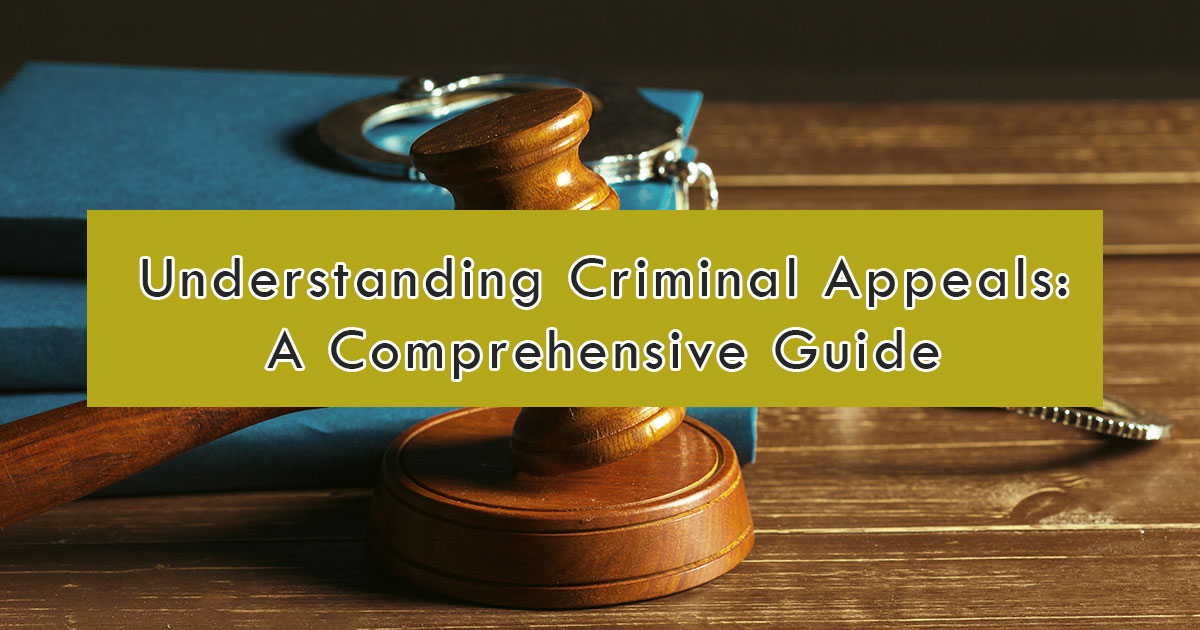The legal landscape can be complex, especially when it comes to criminal cases. One aspect of the legal process that individuals may encounter is a “criminal appeal.” But what exactly does this term entail, and how does it impact those involved in the criminal justice system? In this article, we will provide a thorough exploration of what a criminal appeal is, the reasons behind it, and the crucial role it plays in the pursuit of justice.
Defining Criminal Appeals
A criminal appeal is a legal process through which a convicted individual seeks to challenge a court’s decision in a higher court. Unlike the initial trial, where evidence is presented and witnesses testify, an appeal focuses on the legal procedures and decisions made during the trial rather than re-examining the facts of the case.
Grounds for Criminal Appeals
- Legal Errors:Criminal appeals often arise from legal errors made during the trial. This can include mistakes in the application of the law, improper jury instructions, or the admission of evidence that should have been excluded.
- Ineffective Assistance of Counsel:If a defendant believes their legal representation during the trial was inadequate and compromised their defense, they may file an appeal based on the claim of ineffective assistance of counsel.
- New Evidence:In some cases, new evidence that was not available during the trial may come to light. A criminal appeal may be filed to present this new evidence, potentially leading to a reevaluation of the case.
- Misconduct:Allegations of prosecutorial or judicial misconduct can be grounds for a criminal appeal. This includes actions that may have unfairly influenced the outcome of the trial.
The Process of Criminal Appeals
- Filing a Notice of Appeal:The process begins with the convicted individual, known as the appellant, filing a notice of appeal within a specified timeframe after the trial verdict. This document formally informs the higher court of the intent to appeal.
- Appellate Briefs:Both the appellant and the opposing party submit written arguments, known as appellate briefs, outlining their legal positions. These documents provide the higher court with a comprehensive understanding of the issues at hand.
- Oral Arguments:In some cases, the appellate court may hear oral arguments from both parties. This allows each side to present their case and respond to questions from the judges.
- Appellate Decision:The higher court will then render a decision, either affirming the lower court’s decision, overturning it, or ordering a new trial. The outcome depends on the merits of the legal arguments presented.
Conclusion
In conclusion, a criminal appeal serves as a vital mechanism within the legal system to rectify errors and ensure that justice is served. It allows individuals to challenge decisions that may have been influenced by legal mistakes or misconduct, providing a crucial avenue for the protection of legal rights. As the legal landscape continues to evolve, understanding the intricacies of criminal appeals becomes increasingly important for those navigating the complexities of the criminal justice system.
Criminal Appeals FAQs
How much does a criminal appeal cost?
The cost of a criminal appeal varies widely but can range from several thousand to tens of thousands of dollars, depending on factors such as the complexity of the case, legal fees, court filing fees, and additional expenses like investigation or expert witness fees. It’s advisable to consult with an attorney for a more accurate estimate based on the specific details of the case.
What percentage of criminal appeals are successful?
It is challenging to provide a specific percentage for the success rate of criminal appeals because it can vary widely based on jurisdiction, the nature of the case, and the grounds for appeal. Success rates are influenced by factors such as the strength of legal arguments, the quality of legal representation, and the specific circumstances of each case.
How long do you have to appeal a criminal conviction?
The time frame within which you can appeal a criminal conviction varies by jurisdiction, and it is typically governed by specific legal deadlines. These deadlines are often set by statute or court rules and can vary significantly from one jurisdiction to another. In the United States, for example, the time limit to file a notice of appeal is generally 10 to 30 days after the entry of the judgment or order being appealed.









Leave a Reply